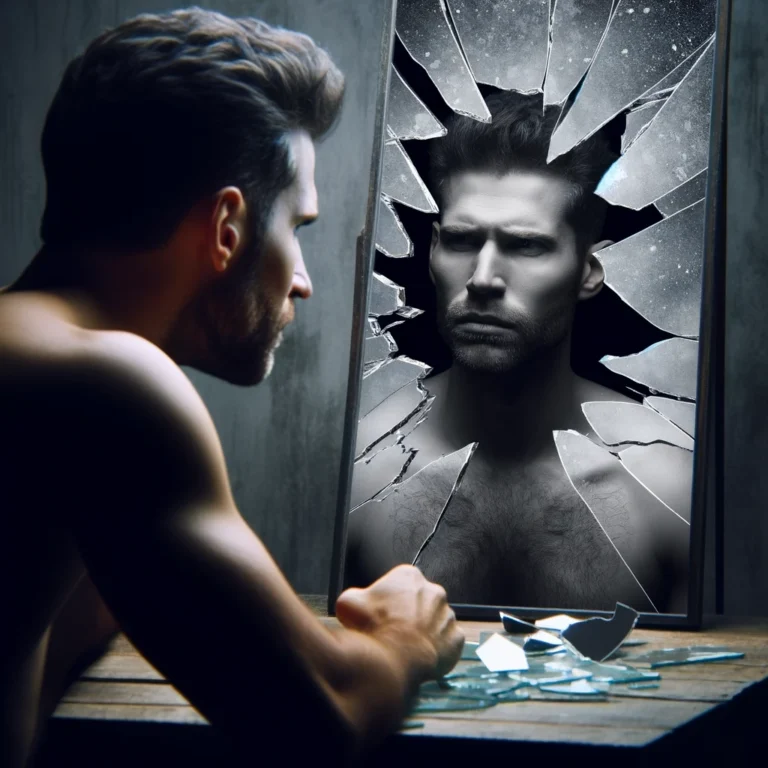What does it mean to be a man?
For many, it means following a rigid set of rules: be tough, be dominant, be emotionless. But these norms are not only limiting, they are also harmful.
Toxic masculinity is a term that describes the negative aspects of traditional male roles, such as violence, aggression, and suppression of feelings. It affects not only men but also women and society as a whole.
In this article, we will explore the dark side of masculine toxicity and how we can challenge it for a better future.
What is Toxic Masculinity?
Toxic masculinity refers to harmful societal standards for how men should behave. These rigid rules enshrine emotional repression, domination, and aggression. “Boys don’t cry. Take it like a man. Bros before hoes.” Such mantras reinforce archaic gender roles. Men who show emotion or vulnerability face ridicule for being “unmanly”.
This “man box” dictates what behaviors are acceptable for men. Inside, they enjoy status and belonging. Outside, exile and shame. Those who police its boundaries use shaming and violence to fortify traditional ideals. But toxic masculinity doesn’t just harm women. It poisons men too, stunting their humanity.
The Toxic Cycle: Shame, Suppression, Explosion
From boyhood, males learn emotions are undesirable. “Stop crying like a girl!” Adult men must be invulnerable, and indestructible. This conditions suppression. Within, shame festers like an untreated wound, building pressure. With no healthy outlet, it manifests as aggression. Domestic violence. Bar fights. Abuse as proof of Manliness.
“Crying is for the weak. Man up and shut up.”
This cycle ripples through society, leaving trauma. Yet we raise boys to believe it is the only way to “be a man”.
Why Does it Exist at All?

Toxic masculinity is a reaction to a threat. The threat? Power loss.
For millennia, men held primary power status in society. Now, women gain equity in business, politics, and education. Some men feel destabilized, desperate to reassert dominance. They cling to the “good old days” when men “knew their place”.
Progress kindles their fear of emasculation. This drives hyper-machismo displays, reinforcement of female submission, and rejection of “feminine” interests. Their fragile status seems under siege. Violence and harassment fortify the barriers against equality.
How Culture Programs Toxicity
Culture programs toxic masculinity from infancy. “Blue is for boys. Pink for girls.” Toy aisles are divided by gender. Boys get trucks, action figures, and NERF guns which prime aggression. Girls get dolls, cosmetics, and kitchen sets which prime homemaking.
Media perpetuates it too. Men are action heroes, stoic warriors, and serious businessmen. Not nurturing fathers. Not goofy guys baking cupcakes. One-dimensional macho archetypes inform expectations.
Ads portray men as sex-driven animals, always chasing sex and status. Women are subordinate eye candy. Together, these socialize boys to view relationships as conquests and girls as pretty prizes. Is it any wonder boys grow up believing they are entitled to women’s bodies?
Consequences on Mental Health
The sheer weight of toxic expectations crushes true self-expression. Men suppress emotion or vulnerability to avoid being labeled “weak”. But denying this humanity harms mental health.
- Isolation increases. With no outlet for honesty, men conceal their inner lives behind a facade of invulnerability.
- Mental health issues rise but go unaddressed. Admitting struggle means surrendering “manliness”.
- Suicide rates climb. Men are less likely to seek support due to stigma.
- Violence rises. Young men believe physical domination is the only path to respect.
This is the snowball effect of teaching boys that their value lies in suppressing humanity.
Dismantling Toxic Attitudes
Change starts with awareness. We must critically examine ways we enable old gender rules.
For boys, open dialogue about emotions and healthy relating should begin early. Boys need reassurance showing sadness or affection doesn’t make them “weak”. Nor does pursuing interests like art, poetry, or fashion diminish their masculinity.
Schools can teach emotional intelligence and empathy. Boys can learn to resolve conflicts through communication, not aggression. Expanding their emotional toolbox helps boys grow into compassionate men.
We must also reconsider media messaging that glamorizes macho actions and conquest attitudes. Stories exploring nuanced masculinities can stretch rigid gender rules. Advertisers should portray men as nurturers too.
Most importantly, call out toxic attitudes when you see them. Silence enables harm. With compassion, we can help men unlearn destructive conditioning. A new masculinity is possible.
Promoting Healthy Manhood

Healthy masculinity fosters wholeness – strength plus vulnerability, courage plus nurturing. It welcomes authentic self-expression beyond gender rules.
How do we cultivate this?
- Support displays of emotion in boys. Teach them tears don’t equate to weakness.
- Applaud self-expression. If a boy wants to take ballet, don’t shun him to protect his “manliness”.
- Promote healthy communication and conflict resolution over aggression
- Portray multi-dimensional masculinities in media – the soft-hearted hero, the stay-at-home dad.
- Call out negative attitudes. Don’t laugh at sexist jokes. Stand up to “locker room talk.”
- Make consent and respect core values. Stop excusing harassment or abuse as “boys being boys.”
Men, give yourselves permission to be human! It is strong to cry, ask for help, and drop the mask. You are more than society’s narrow box.
There is Light
The journey beyond toxic masculinity begins with one step. Then another. Progress will require work from all of us. But the rewards outweigh the growing pains: reducing violence, building loving relationships, and allowing joyful self-expression.
We all gain from a society where boys can grow into empathetic men. Where displaying humanity, not dominance defines valor. The light already shines in boys giggling freely, fathers tenderly consoling sons, and men boldly confronting old rules.
May this light guide us from the shadows of masculine toxicity into a new dawn of human wholeness.

